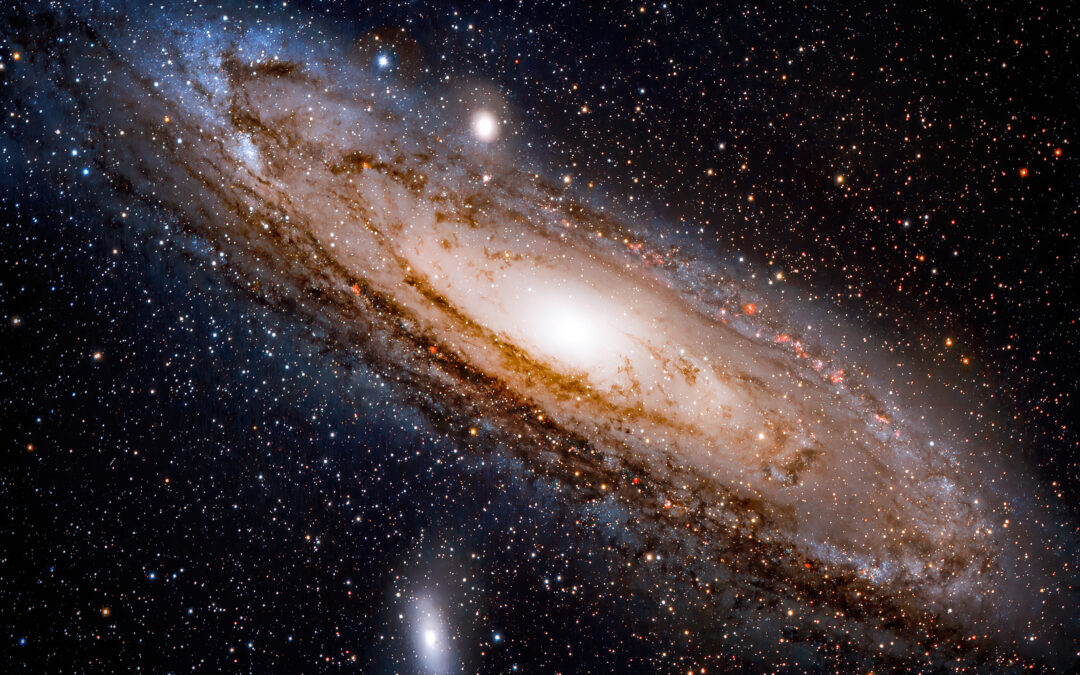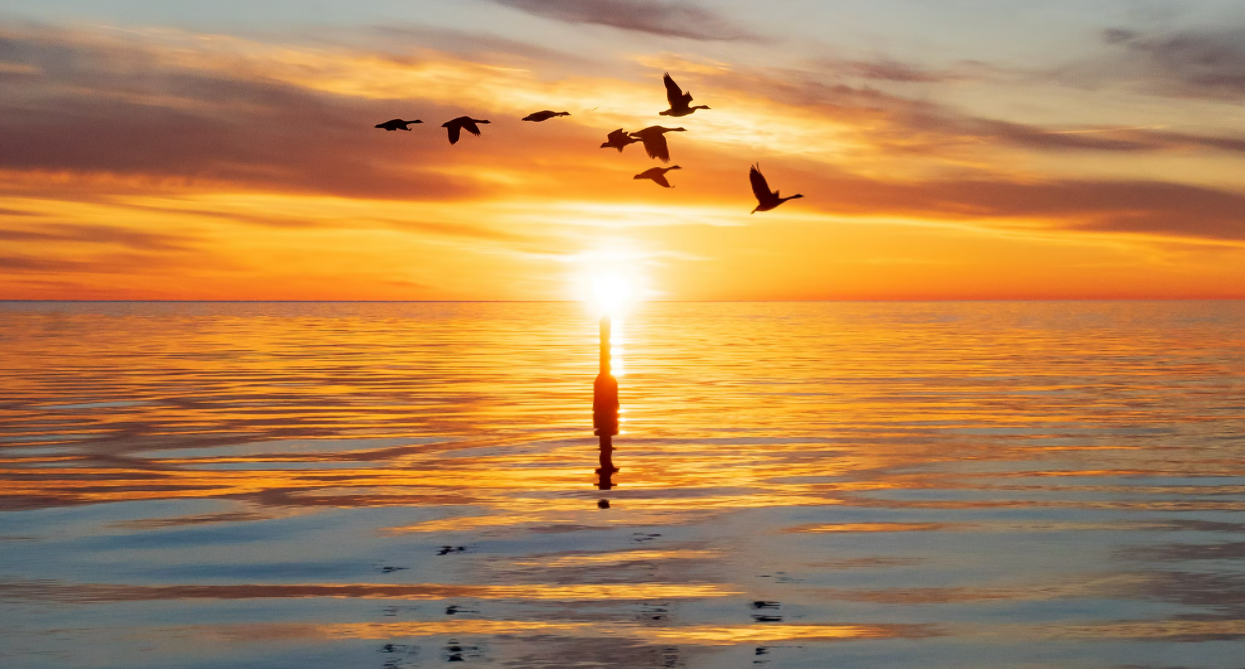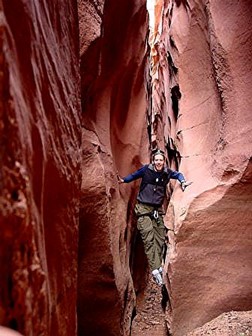*Hubble Nasa Image of Andromeda Galaxy
There is a wonderful story about President Teddy Roosevelt that teaches an essential life perspective.
William Beebe, the naturalist, and a close friend of Roosevelt, is credited with sharing it.
At Sagamore Hill, New York (nick-named the summer White House)—Beebe and Roosevelt would often go out on the lawn and stare at the night skies to search for a certain bright spot of light near the lower left-hand corner of the constellation Pegasus.
Then Roosevelt would say: “That is the Spiral Galaxy Andromeda. It is as large as our Milky Way. It is one of a hundred million galaxies. It consists of one hundred billion suns, each larger than our sun.”
Then Roosevelt would chuckle and say, “Now I think we are small enough! Let’s go to bed.”
And we are only just beginning to recognize how infinitesimally small we really are.
Consider the following…
In 1995, less than 30 years ago, astronomers pointed the Hubble telescope toward a seemingly empty area of space (Ursa Major) for 10 days. Shockingly, they discovered nearly 3,000 faint galaxies in a single tiny frame.
Using that image, and other new space telescopes like the incredible James Webb—an acceptable estimate for the total number of galaxies in the universe is more than 100 billion galaxies.
Scientists expect this estimate will soon grow to 200 billion.
For perspective on the unfathomable distances in space, the next closest galaxy to our own Milky Way is Andromeda, and it would take us 2.5 million years to get there IF we could travel at the speed of light (which we cannot yet do).
Furthermore, the center of our own galaxy is a supermassive black hole 4 million times the mass of our sun (Sagitarius A) which is a mere 25,000 light years away. This black hole devours stars and scientists don’t yet understand what happens to objects sucked into a black hole.
Even our own sun is in the process of burning out, in the grand cycle of life and death that stars have been going through for billions of years. Don’t worry, you still have about 7 billion years to get your tan before the sun sets for the last time.
And finally, the estimated age of the universe is 13.7 billion years old. The earth is a mere infant at just 4.5 billion years old.
As big as the universe is, it is actually getting bigger—and fast. Scientists estimate that the universe is expanding at a rate of 42 miles per second, propelled by something we don’t yet understand called Dark Energy.
Some final thoughts:
Scientists estimate that there have been five major mass extinction events in recent history (recent meaning the last 500 million years). A mass extinction is defined as at least 75% of earths species going extinct in a short period of time.
The last mass extinction was about 65 million years ago and eradicated the dinosaurs.
What exactly has caused these extinction events? Volcanic explosions, tectonic plate shifting, glacial movement, rapid growth of land plants causing severe global cooling, changes in ocean chemistry, and asteroid impacts.
Furthermore, human-like creatures have probably been on the earth for about 7 million years with modern humans coming onto the scene about 200,000 years ago.
Do you feel small yet?
Know your place
Every great leader must know their true place in the grand scheme of things.
I don’t know about you, but I like to think that my life has meaning, I am important, and that I can control stuff. But this mindset can easily lead me into feeling frustrated, inferior, afraid to make mistakes, or forcing things to happen on my terms.
Now we see the genius of Roosevelt.
In order to keep his ego in check, he looked at the stars and considered his place in the vast universe.
This is both terrifying, and helpful.
In one sense, we might feel that our actions don’t matter at all.
In another sense, reflecting on our place in the universe can alleviate the extreme pressure we often place on ourselves or fear of making mistakes, and we can finally be free to act without an unhealthy attachment to the outcome.
Suddenly it doesn’t seem so scary to write that book, start that business, or make that phone call.
When we consider time and space—the frightening enormity of it —it is nearly impossible to feel arrogant, egotistical, self-centered, or controlling.
There are forces at work we cannot possibly understand.
We are part of something so much larger than ourselves that it is incomprehensible.
Only when we consider the sheer immensity of it are we truly free to act with greater freedom and creativity.
By all means—we should pursue our goals and endeavor to make the world a better place. But we must stand firmly anchored in this larger perspective.
Research by Dr. Paul Piff at UC Irvine (2021) confirms that there are significant benefits to meditating on our smallness.
Instead of feeling insignificant or powerless, triggering our sense of smallness seems to have the opposite effect.
Piff is a professor of psychological science in the Morality, Emotion, and Social Hierarchy Lab—and his research demonstrates that triggering our sense of smallness or awe leads to greater “pro-social behavior, generosity, and helping others.”
His findings suggest that a feeling of smallness reduces our sense of entitlement and narcissistic habits. Interestingly, people without this larger perspective seem to “occupy center stage of their psychological world” and are more prone to self-focus, self-criticism, and self-loathing.
And Piff’s research shows that we can actually get better at our sense of awe, by practicing it—like building a muscle.
Stare at the ocean. Look up at the stars. Stand on the edge of the Grand Canyon. “You want the visceral experience of ‘Wow, I am really small relative to this huge thing,’ Piff says.
Great spiritual masters knew this intuitively.
Jesus went to the desert.
Buddha sat under a tree.
Where will you go?
“The Master does the job and then steps back. They understand that the universe is forever out of control and when we try to dominate events, we go against the current of things (the Tao). Because they believe in themselves, they do not try to convince others. Because they are content, they do not need approval. Because they accept themselves, the whole world accepts them.” –Tao Te Ching (English Translation by Stephen Mitchell)
Have a great weekend!
Parker
*If you have enjoyed Leadyoufirst.com articles, check out The Next Peak Podcast where Parker co-hosts every other episode.
Want more? Suggested Resources
- Tao Te Ching English Version by Mitchell
- How to feel small New York Times article 2021
- Ego is the Enemy by Ryan Holliday




